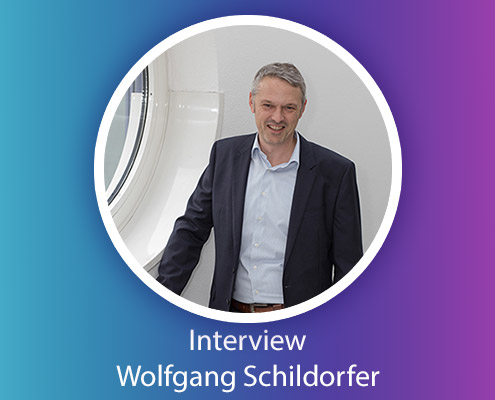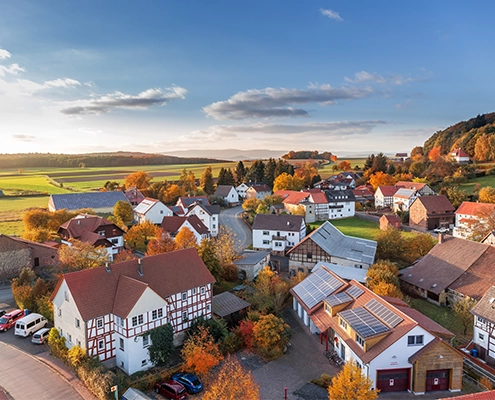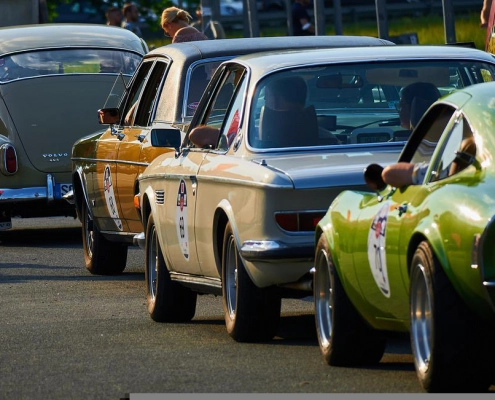“A vision has to be worked out together in which all stakeholders are integrated.”
Dr. Wolfgang Schildorfer, Research Professor for Transport Logistics and Mobility at the Steyr University of Applied Sciences, talks about the challenges, goals and successes of MaaS projects in an interview with Fluidtime.
Fluidtime: In order to achieve success in the field of sustainable mobility, it is particularly important to create alliances between the city, the rural areas and private companies. Together, they will address the question of how to form alliances for joint mobility solutions and how to combine self-interest and the common good in the process.
It is not only about the city, the rural area or the private company. More so it is about the people, living in these individual spaces. Here, different interests, attitudes and opinions tend to collide which disrupts the process of decision-making. which disrupts the process of decision-making. Additionally, there is rarely mutual consensus on how to define sustainable mobility and which aspects of it need to be prioritized. Ecological, economical and social aspects are hereby issues in need to be taken into account. The biggest hurdle to start off is therefore to find common pin points and mutual challenges every involved party is facing. Could it be increasing traffic and CO² pollution? Daily commuting, private traveling or something completely different?
These common challenges need to be evaluated for all stakeholders. Only then projects are able to be launched with a common objective. Naturally, the interests of all stakeholders must be collected, even though not every demand can be implemented to the fullest extent. This depends on the political decision-makers who create a certain framework and define rules. Not all measures for sustainable mobility can be reflected positively in economic terms. Therefore, a redistribution is in need in order to be able to operate non-economic services – such as demand responsive transport.
Fluidtime: Did you have a project where the mediation and communication between the individual parties worked well?
Schildorfer: The Domino OÖ (Upper Austria) pilot project was a clearly defined common challenge – the daily traffic situation in the central region of Upper Austria. Many people drive to their workplace in Linz every day and encounter steady traffic jam situations. The communication with the stakeholders and mediation between the public authorities and the implementation partners worked excellently. The biggest help in this project was the early elaborated concept, allowing to work on a common ground.
Fluidtime: What advice would you give to other projects and ecosystems that are just getting started or are still tinkering with the concept?
Schildorfer: I can’t give specific suggestions. It’s always important to set common challenges and to bring all stakeholders on one table very quickly. A vision has to be worked out together in which all stakeholders are integrated. The developed implementation measures and the respective tasks must be clearly distributed. A certain level of willingness to be flexible is important in order to be able to react to constantly changing mobility challenges. It’s essential to be thinking and acting ahead.
Meet Wolfgang Schildorfer live as a speaker at the Fluidtime MaaS Symposium
At the 6th Fluidtime MaaS Symposium, Wolfgang Schildorfer will join Lina Moßhammer (WiM – Women in Mobility) and James Lancaster (EHI) on the panel of the third session “Solution Alliances”. Together, they will address the question of how to form alliances for joint mobility solutions and how to combine self-interest and the common good in the process. The 6th Fluidtime MaaS Symposium will be held in Vienna on September 16-17, 2021. You want to get to know Wolfgang Schildorfer in person? Then register here to attend the MaaS Symposium. There are currently still attractive early bird rates for the fast!
About Wolfgang Schildorfer
Dr. Wolfgang Schildorfer is Professor for Transport & Logistics at the University of Applied Sciences Upper Austria – Campus Steyr. He is involved in various projects such as “Active8”, “VW goes Binnenschiff”, “Domino OÖ” and many more. The constant goals are to make mobility sustainable and to guarantee the protection of vulnerable Road Users.






